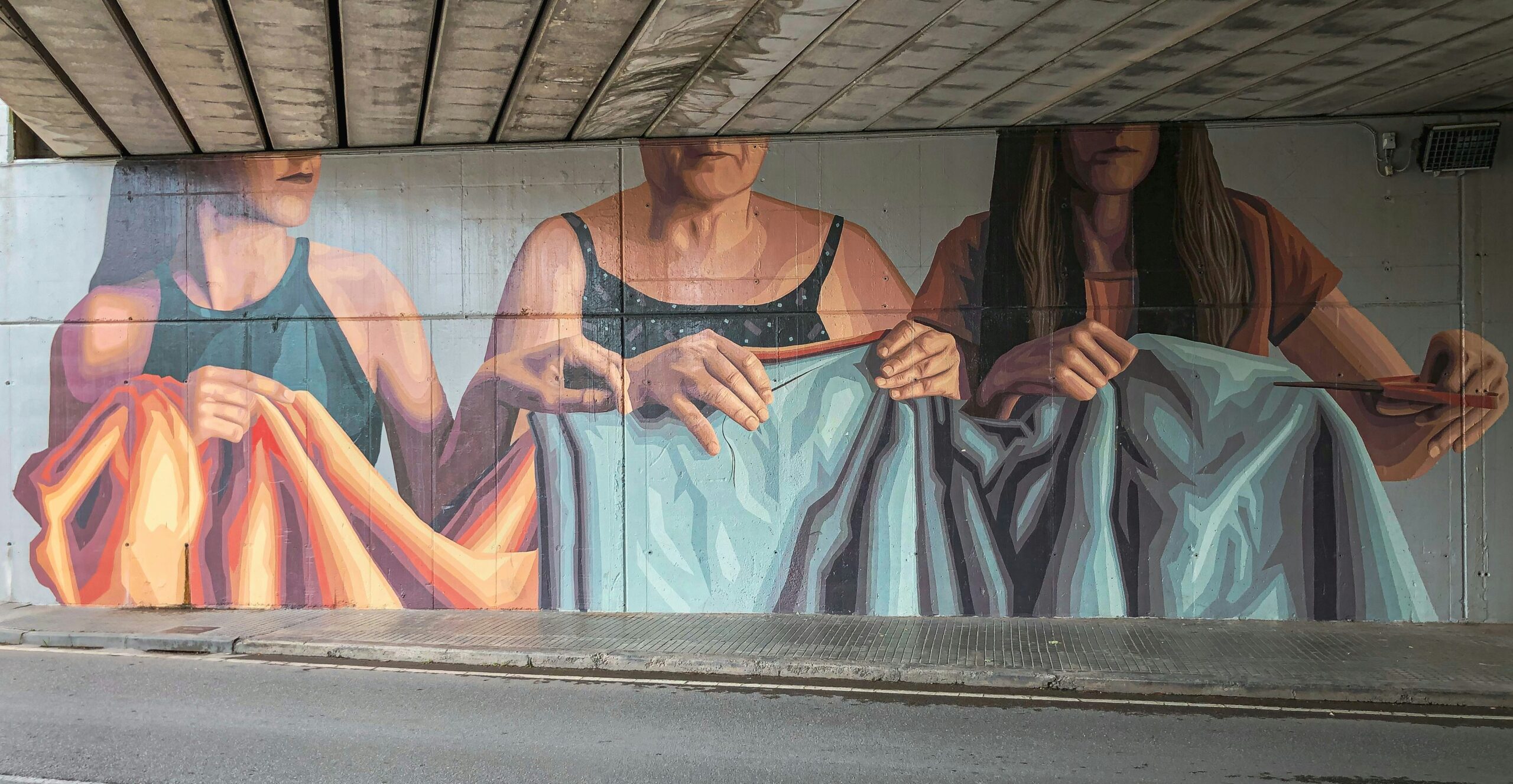Introduction
In his landmark essay on civil religion,[1] sociologist Robert Bellah opened by discussing the inauguration ceremony of President John F. Kennedy. The inauguration, for Bellah, was an important illustration not necessarily of the particularities of President Kennedy’s personal religious beliefs, but rather of the general sense of importance given to the public aspects of religion, as indicated by both the speech and the larger inaugural ceremony. As a ritual of our democracy, one that Bellah says lends an important legitimacy to political authority, the large-scale, public nature of the inauguration provides an important example of how ceremonial engagement reaffirms our commitment to the democratic process with our fellow citizens in the United States.
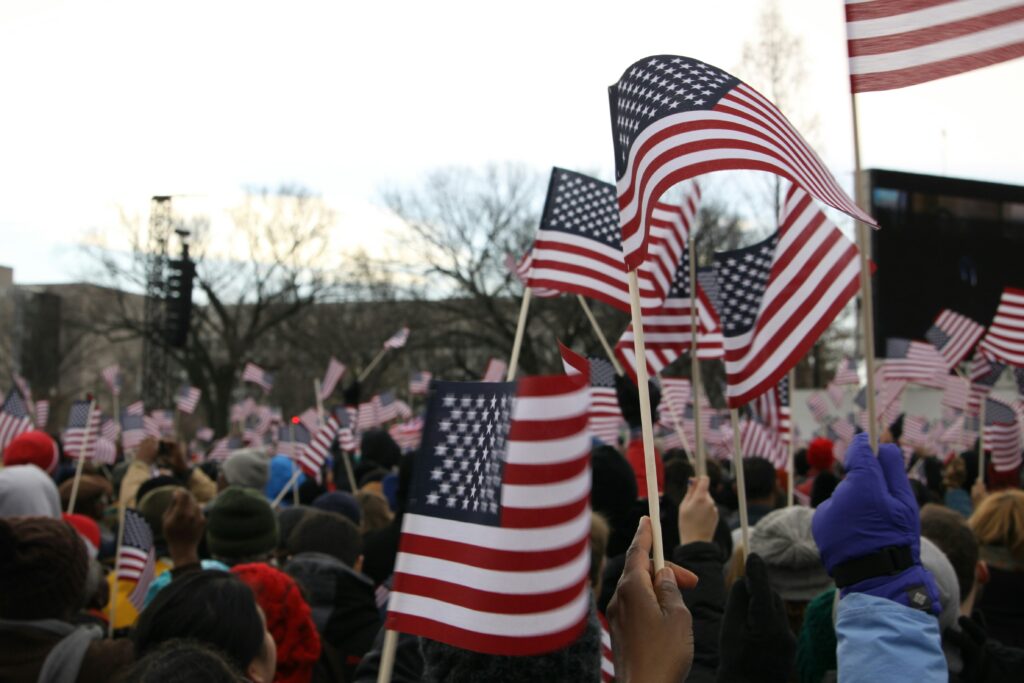
Contrast this with the recent inauguration of President Donald Trump earlier this year. The ceremony was moved indoors, allegedly due to inclement weather,[2] with no public viewing option provided for most of the ceremonies. Regardless of the reasons for this change in ceremonies, the result is an interruption of the ritual in which people witness the peaceful transition of power from one democratically elected leader to another.
Ritualized practices affirm our commitment to collective shared values, and while we may disagree on specific political goals or outcomes in the day-to-day, one of the things that most sustains the democratic project of the United States is a collective commitment to the process itself. It is in this spirit that the SSRC Religion and Democratic Renewal Project has asked about the conditions under which we remain committed to the processes of democratic life. This project raises important questions about the civil religion framework. How do we actually create the grounds for civic inclusion such that all people can actually participate in democratic life?
In this Intersections collection, the essays each took up the case of Muslims engaging in civic life around the world. Though each examines a distinct case study, with its own local experiences and unique conclusions, together they all provide a set of three important insights about how we can better understand the role of religion and spirituality to enhance the civic structure of our collective democratic experience.
Sacred and Secular are Difficult to Separate
First, the three essays in this series draw our attention to places where scholars can observe a challenge to the conventional, clear-cut binary between the sacred and the secular. As we discussed in our opening introductory essay, Western-centric academic traditions often assume that sacred and secular social and political forces are distinctly separate, easily separable analytically, and often set apart on different sides of the democratic axis. We tend to assume that, in most political conflicts, one side will be distinctly religious, another side will be distinctly secular, and only one of those distinct parties will have a legitimate claim to the democratic process. Muslim feminist scholars have directly challenged this view.
There is precedent for this kind of challenge — Black civil religion. Black communities have seen civil religion as a vehicle to inculcate their experience of being “American” into civic discourse and the public square. In Drew Smith’s essay on Black religious experience and American civic ideals, he explains that “Black public activism has been guided largely by Black affinities toward the US Constitution and approached out of a spirit of religious conviction and political necessity.”[3] While, as Rice notes, many Black Americans have rightly expressed skepticism as to whether the pluralistic and divine promise of America could or does include them, several Black politicians and religious leaders have pointed to the promise of democracy. This promise, in the words of Georgia senator Raphael Warnock, affords “the possibility [which] is born of democracy—a vote, a voice, a chance to help determine the direction of the country and one’s own destiny within it.”[4] It is certainly important to note that many Black people remain rightly skeptical of this promise, particularly in a moment when their contributions to the American project are being effaced, minimized, and devalued. Historically, the democratic project has been slow to include those outside of the majority and has been quick to surveil and police those who do not easily fit into the white, Christian underpinnings of modern American democracy. It is telling that despite these continued harms, many Black religious leaders see divine providence indelibly linked to the promise of the American Constitution. This is a critical faith that seeks to hold to account civic principles to ensure that pluralism rather than tribalism remains the core principle of American democracy.
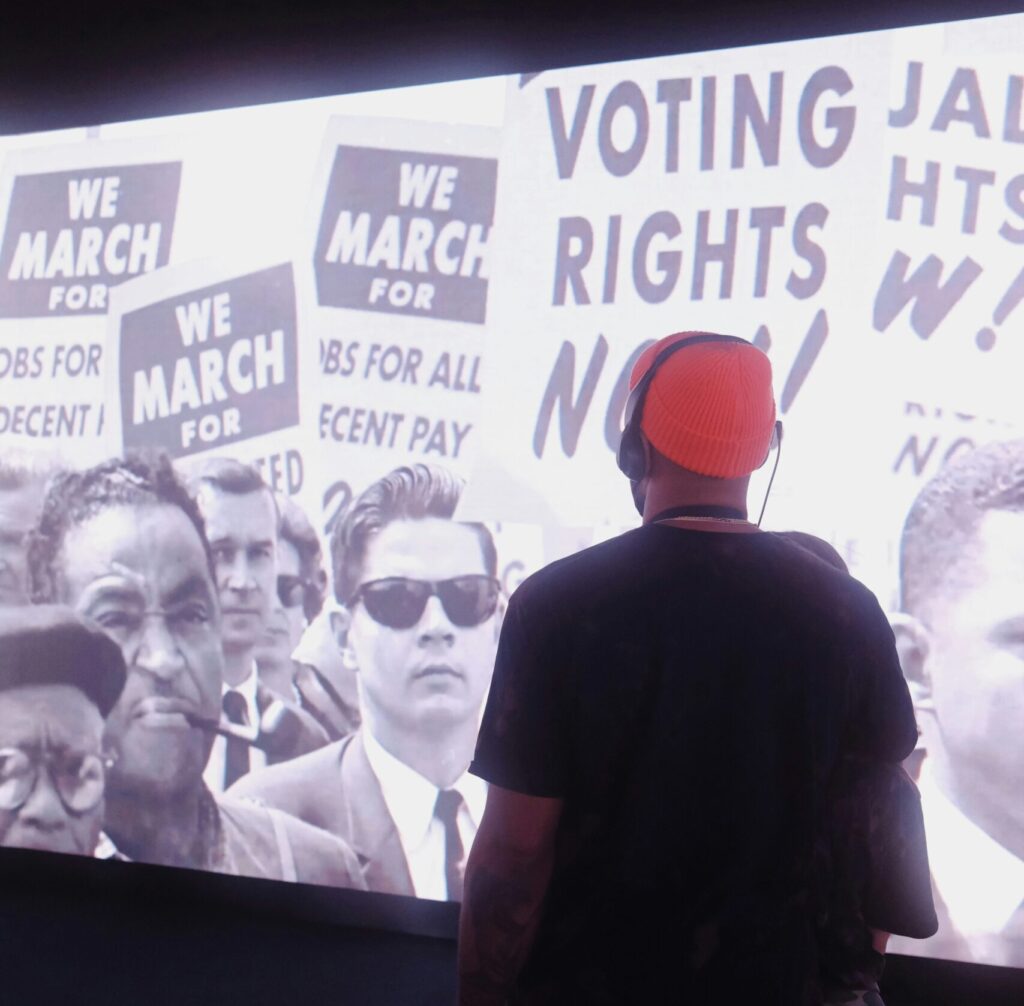
The essays in our collection provide a rich set of examples where the clean binary between the sacred and the secular is disrupted by the everyday lives of people engaging in civil society. We saw examples of religion being central to women’s dignity and autonomy in the workplace, student agency through holistic approaches to science education, which privilege life experience, and the way a distinctly Muslim ethical imperative (farz) spurred democratic protest against autocratic policies. In each of these cases, a stark, clear boundary between the religious and the secular collapses. These examples underscore the importance of recognizing that religious and secular entities are not always as distinct as a formal separation of church and state would imply. They also challenge us as thinkers, researchers, and citizens to explore how religious commitments can materially enhance democratic commitments in unexpected and perhaps more subtle ways than we might initially assume.
Civil Religion Needs Civic Bargains
Second, each of these essays points us to a fundamental part of democratic renewal: what Brook Manville and Josiah Ober call “the civic bargain.”[5] In their view, a key requirement for sustaining democracy is that people maintain a sense of “civic friendship” with each other. People must recognize each other as relatively equal participants in the political process to sustain the discussion, negotiation, and compromise that are necessary to maintain a functioning and thriving democracy. A crucial precondition for compromise, however, is the recognition of the equal dignity and merit of one’s conversation partners, acknowledging that they have the right to make a case for their specific needs. The first step in this process is addressing what sociologist Michèle Lamont calls “recognition gaps” – the moments where we do not recognize the equal dignity of our fellow citizens as parties in this bargaining process.[6] As these essays show, civic society within a pluralistic democracy requires such bargains and a recognition of approaches to civic engagement that do not always conform to Western prescriptions of liberalism.
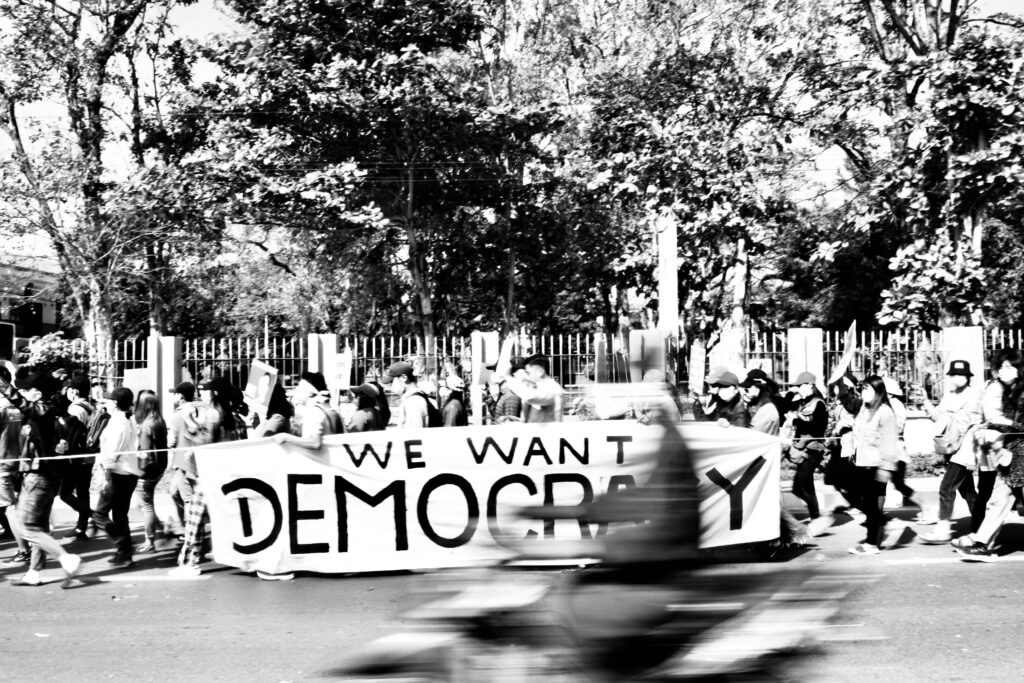
Across each of the studies in this essay collection, the authors point toward new kinds of recognition gaps, such as the struggle of Hijabis in Turkey to enter the corporate banking sector or the recognition of a burka-clad woman’s democratic protest as also a fundamental and necessary expression of faith. The essays also point toward novel ways to address these recognition gaps, offer a fresh perspective on individuals’ pursuit of autonomy, agency, and equal dignity within their unique institutional experiences. The people in these essays entered entirely new industries, developed new curricula, and launched social movements that advanced a sense of equal dignity and recognition to ultimately facilitate more democratic practices. The key here is that religion, often thought of as a social force that creates recognition gaps between different groups of people, can also be a tool that resolves those gaps in novel ways. Moreover, in these essays, we see a reimagining of democratic renewal and civic engagement through the lens of pluralistic visions of liberalism. Protest, individual autonomy, and the holistic education operate as worlding mechanisms- expressions of what multifaceted religious pluralism in civic society can offer.
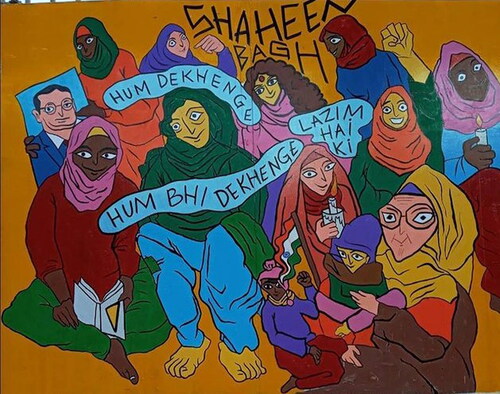
Democracy Needs Diverse Coalitions
Finally, these essays remind us of a vital point for democratic life: democracy requires coalition building. It involves gathering people with diverse interests to find common ground and build political coalitions, sometimes compromising to advance their core interests. In this sense, intersectionality becomes more than an identitarian theory and rather operates as an integral part of the political process. By understanding how different identities intertwine across various social groups, we can begin to find new avenues for communication and compromise across a wide range of interests. Each of these pieces requires us to examine the structure and practice of civic life on the ground, as people live it out and make everyday conversations and compromises to authentically be themselves and express their interests and identities. They also highlight how they do this in the context of broader institutions, such as corporations and banks, educational institutions, and governmental structures. Each of these essays has illustrated a case where an attention to complexity and blurred lines between religion, secularism, and democracy has not muddied the waters, but rather created new and exciting avenues for political coalition building in the democratic process.
In the past year, with the rise of populist movements around the world and in the US as well as protest movements which have questioned and tested democratic pluralism, we also see how these essays chart a way forward. These movements often advance views that seem incommensurable, positioning concerns such as economic empowerment vs. perceived threats from immigration as zero-sum. At their core, these movements were asking people to consider what they value most and suggesting that such values could only be advanced at the expense of others.
In these essays, we see how such incommensurability of such concerns can perhaps be ameliorated by reconfiguring democratic values as necessarily plural and intersecting. We see examples of multifaceted liberalisms. Such an approach can help decenter the zero-sum politics of upliftment, which authoritarian populist movements seek to create, towards mechanisms of civic engagement that consider and value multiple voices and ideas. Such forms of civic engagement would center coalition and collaboration rather than competition at the heart of democratic renewal.
As we noted in our introductory essay, we sought work that would document new and unique cases where people are embodying not a romanticized or sterilized vision of democratic practice and pluralism but accomplishing the messy work of connecting across differences. For scholars and citizens, both in the United States and around the world, this necessary work must continue.
Footnotes
[1] Robert Bellah, “Civil Religion in America,” Dædalus 96, no. 1 (1967): 1–21.
[2] Laura Wainman and Samara Martin-Ewing, “No Jumbotrons on National Mall for Inauguration Viewing,” WUSA9, January 19, 2025, https://millercenter.org/president/harrison/death-of-the-president.
[3] Drew Smith, “Black Religious Fostering of American Civic Ideals,” AAIHS, January 20, 2023, https://www.aaihs.org/black-religious-fostering-of-american-civic-ideals/.
[4] Ibid.
[5] Brook Manville and Josiah Ober, The Civic Bargain: How Democracy Survives (Princeton, NJ: Princeton University Press, 2023), https://doi.org/10.1515/9780691230443.
[6] Michèle Lamont, Seeing Others (New York: Simon & Schuster, 2023), https://www.simonandschuster.com/books/Seeing-Others/Michele-Lamont/9781982153786.
Works Cited
Bellah, Robert. 1967. “Civil Religion in America.” Dædalus 96, no. 1: 1–21.
Lamont, Michèle. 2018. “Addressing Recognition Gaps: Destigmatization and the Reduction of Inequality.” American Sociological Review 83, no. 3: 419–44. https://doi.org/10.1177/0003122418773775.
———. 2023. Seeing Others. New York: Simon & Schuster. https://www.simonandschuster.com/books/Seeing-Others/Michele-Lamont/9781982153786.
Manville, Brook, and Josiah Ober. 2023. The Civic Bargain: How Democracy Survives. Princeton, NJ: Princeton University Press. https://doi.org/10.1515/9780691230443.
Smith, Drew. 2023. “Black Religious Fostering of American Civic Ideals.” AAIHS, January 20, 2023. Accessed May 8, 2025. https://www.aaihs.org/black-religious-fostering-of-american-civic-ideals/.
Wainman, Laura, and Samara Martin-Ewing. 2025. “No Jumbotrons on National Mall for Inauguration Viewing.” WUSA9, January 19, 2025. Accessed May 4, 2025. https://www.wusa9.com/article/news/politics/national-politics/inauguration/screens-national-mall-viewing-donald-trump-inauguration-dc.

